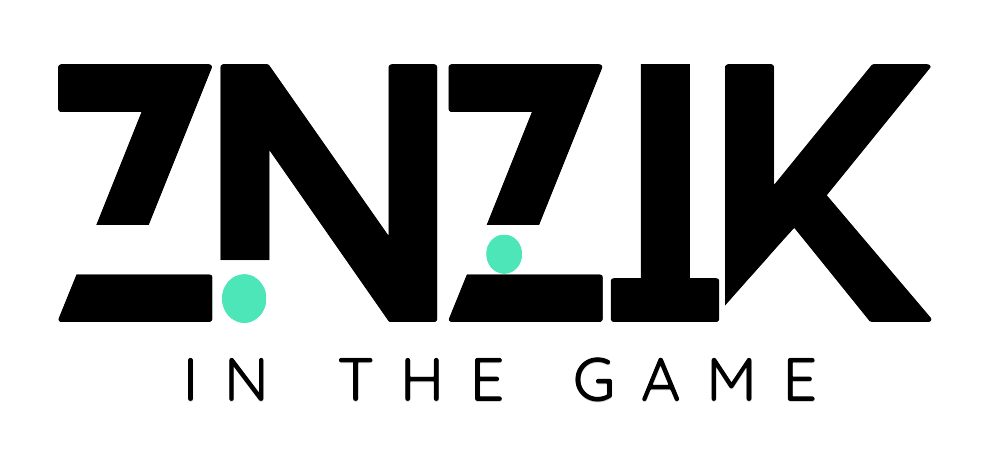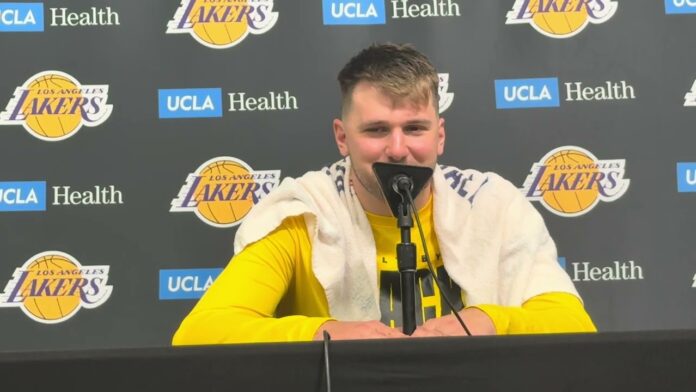The Shock of Doncic’s Trade to the Lakers
An unexpected exchange that shook the NBA
The announcement came like a thunderbolt from a clear sky. Luka Doncic, the face of the Dallas Mavericks franchise since his arrival in 2018, was joining the legendary Los Angeles Lakers. This news sent shockwaves throughout the league, as the Slovenian seemed inseparable from the Texan team that had drafted and developed him.
Analysts and fans immediately questioned the motivations behind such a trade. How could Dallas part ways with someone who was considered their cornerstone for the next decade? How had the Lakers pulled off this feat? Beyond strategic and financial considerations, it’s the emotional impact on the player himself that deserves our attention.
Doncic’s initial reaction: a mixture of surprise and sadness
“I absolutely didn’t expect it,” Doncic confided during his first post-trade press conference. “When my agent called me, I initially thought it was a joke. I felt an immediate void.” These words testify to the player’s deep attachment to his first NBA team, but also to the brutality with which careers can take unexpected turns in professional sports.
Dallas, still considered “home”
Despite the initial shock, Doncic never failed to acknowledge the importance of Dallas in his journey. “That’s where I grew as a player and as a man,” he emphasized. “Dallas will always remain special to me; it’s the city that welcomed me when I was just a European kid with big dreams.”
This ability to recognize the importance of the past while projecting into the future already demonstrates a certain emotional maturity, essential for navigating such professional upheavals.
First Steps Against the Mavericks: A Whirlwind of Emotions
An emotionally charged game filled with nostalgia
The NBA schedule sometimes has a sense of drama. Barely a few weeks after his trade, Doncic found himself facing his former team. Wearing the purple and gold Lakers jersey against the Mavericks represented a considerable emotional challenge. Cameras didn’t miss capturing the exchanged glances with his former teammates, the brief embraces, and the strange tension that inhabited the Slovenian.
Doncic’s words: “weird,” “different,” difficult to explain
After this encounter, Doncic struggled to put his feelings into words. “It was weird… different… I don’t really know how to explain it,” he admitted, visibly still troubled. This difficulty in verbalizing his emotions perfectly illustrates the intensity of the moment experienced and the complexity of the feelings that inhabited him.
The relief of getting it over with
“I’m relieved that this first game is behind me,” Doncic confided to journalists, thus revealing the psychological pressure he had imposed on himself. This relief marks an important step in his adaptation process. As is often the case in situations of change, anticipation can prove more difficult than the event itself.
Kyrie Irving’s perspective: a strange moment, but fun
On the other side of the court, Kyrie Irving, now the undisputed leader of the Mavericks in Doncic’s absence, offered an interesting perspective. “It was strange to see him in another jersey, but also a bit fun,” Irving commented. “We’ve shared so many moments together that I almost forgot we were opponents for a few seconds.”
Emotional Intelligence and the Grieving Process
“Grief will take time… each day is better.”
Doncic’s lucidity about his own situation deserves to be highlighted. “I’m going through a grieving process and it’s going to take time,” he acknowledged during a more intimate interview. “But I feel that each day is a little better than the previous one.” This awareness of his emotions and their evolution demonstrates remarkable emotional intelligence.
The five stages of grief: denial, anger, bargaining, depression, acceptance
Sports psychologists agree that athletes facing major changes often go through the same stages as those defined by Elisabeth Kübler-Ross in her grief model: denial, anger, bargaining, depression, and acceptance. Doncic seems to have moved beyond the early phases to gradually enter that of acceptance, essential for moving forward.
Accepting emotions as a normal stage
“I’ve learned to accept my emotions rather than fight them,” explains Doncic. “Being sad about leaving Dallas doesn’t mean I’m not excited about this new adventure with the Lakers.” This ability to embrace contradictory feelings represents a fundamental aspect of emotional intelligence and considerably facilitates life transitions.
Doncic and Irving: A Brotherhood Beyond Basketball
A close relationship and mutual support
One of the most touching dimensions of this story lies in the relationship that Doncic has maintained with Kyrie Irving. The two men, who formed one of the NBA’s most formidable duos, have developed a friendship that transcends the simple professional framework.
“We talk almost every day,” reveals Doncic. “Kyrie has helped me a lot through this period. He himself has experienced several trades and understands what I’m going through.” This peer support illustrates the importance of human relationships in managing professional transitions.
Irving’s desire to protect Doncic
For his part, Irving has not hidden his protective instinct toward his former teammate. “I wanted to make sure he was okay, beyond basketball,” explains the Mavericks’ point guard. “Luka is like a little brother to me. I want him to succeed, even if it’s with another team.” This mutual benevolence offers a refreshing counterpoint to the often hyper-competitive image of professional sports.
Looking Toward the Future
The next game in Dallas: a new emotional challenge
If facing the Mavericks in Los Angeles was already a test, returning to Dallas promises to be an even more intense moment for Doncic. “I don’t know how I’ll react entering that arena as a visitor,” he admits. “I just hope I can enjoy the moment and show my gratitude to the fans who supported me all these years.”
This imminent return symbolizes another crucial step in his adaptation process. The reception from the Texan public, likely warm despite the disappointment of his departure, could offer Doncic a form of emotional closure that he needs.
Toward a new normality
Over the weeks, the Lakers jersey is gradually becoming a second skin for Doncic. “I’m starting to feel at home here,” he confides. “The team has welcomed me with open arms, and I feel we’re building something special.” This adaptability, this resilience in the face of change, is perhaps Doncic’s greatest strength, even beyond his exceptional basketball talent.
Luka Doncic’s story reminds us that behind the trades, statistics, and sporting stakes are human beings facing profound upheavals. His exemplary management of this difficult transition offers valuable lessons on emotional intelligence and resilience, applicable well beyond the sporting context.
In a world where professional changes are becoming increasingly frequent, Doncic’s approach—recognizing his emotions, relying on his support network, and projecting positively toward the future—constitutes a model from which everyone could draw inspiration.

After the Lakers Beat the Mavericks, a Reporter Asked …
‘Weird’ and ’emotional’: Luka Doncic is glad his Mavs …
Luka Doncic says he’s glad the first game facing the Dallas …



